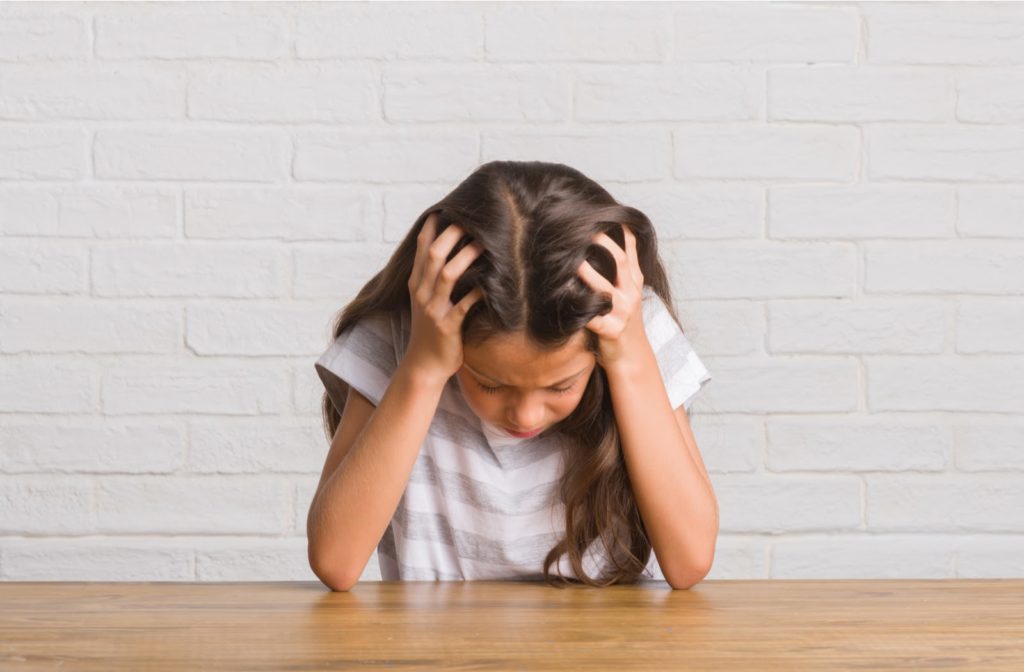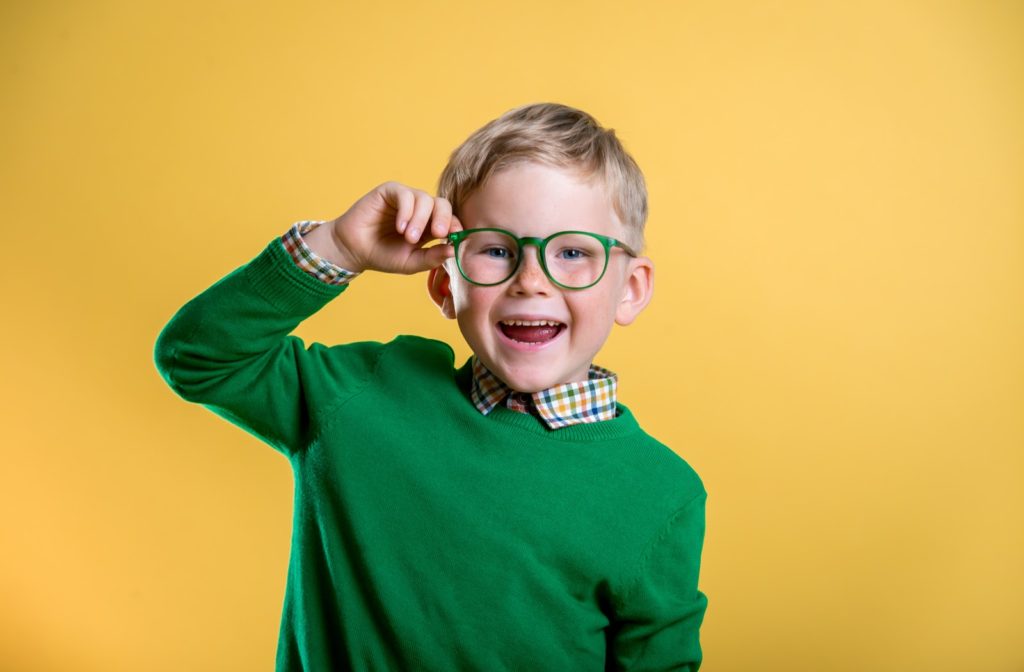Is your child suddenly having trouble concentrating at school? Or maybe you’ve noticed that your child needs to squint just to focus on the TV. These are just two of the many signs that your child may be suffering from a vision problem and needs glasses.
Both children and parents can have trouble identifying the symptoms of vision problems. A child may not tell you that they have vision problems simply because they do not know. They may think the way they see is the way everyone sees.
Because of this, vision problems in children often go undetected and unreported.
Unfortunately, vision problems can greatly impact your child’s mental performance, physical performance, and development. Therefore, it’s important to understand children’s eye health and ensure they have their eyes examined regularly. so, you can recognize the signs that your child may need glasses.
Why Children Wear Eyeglasses
There are many reasons why children may need to wear glasses. Some of the common reasons are:
- To improve their overall vision
- To strengthen vision in a weak or amblyopic eye (lazy eye)
- To ensure the proper position of their eyes (Strabismus, crossed eyes, or misaligned eyes)
- To protect one eye from overworking due to poor vision in the other eye
Signs Your Child May Need Glasses
They are Squinting
Squinting may be a sign that your child is suffering from a refractive error, such as myopia or nearsightedness. Refractive errors affect how well the eyes focus on an image, and by squinting, your child may be able to temporarily improve the clarity of an object.
They are Tilting their Head or Covering One Eye
If your child is having vision problems, they might cover one eye or tilt their head in an attempt to increase clarity when looking at an object. This could be an indication that their eyes are misaligned or that your child has amblyopia, which is a very common eye disorder among children.
They are Rubbing their Eyes
If your child is rubbing their eyes excessively it may indicate that your child is experiencing eye fatigue or digital eye strain. Excessive eye rubbing could also be a sign that your child is suffering from additional conditions, such as allergic conjunctivitis.

They are Complaining of Head or Eye Pain
When someone’s vision is blurred or impaired, they may have to overwork one or both of their eyes to focus on an image or object. This can sometimes cause head or eye pain. If your child complains of these symptoms, it may be a sign that they are experiencing vision problems that need attention.
They are Having Trouble Concentrating
Children do a lot of visual work at school and during play. Their eyes need to be able to adapt quickly based on the closeness and brightness of objects, such as a whiteboard or smart boards, computers and books. Poor vision is a barrier to this and may manifest as a lack of focus on schoolwork. If you notice your child’s level of concentration has shifted, it may be a good idea to get their eyes examined by their eye doctor.
They are Looking at Objects too Closely
If your child needs to look closely at an object or image to see it, it may be an indication that your child is suffering from myopia.
Myopia control in children is a bit different compared to adults because their eyes are still growing. Wearing corrective glasses or contacts may slow the progression of myopia in children if treated early.
What to do if You Think Your Child Needs Glasses
If you have noticed any of the previously mentioned symptoms in your child you should book an appointment with your eye doctor to get their eyes examined.
What Can you Expect From A Children’s Eye Exam?
Children’s eye exams will vary depending on how old your child is. A children’s eye exam follows this general outline:
- Your doctor will discuss your child’s medical and family history with you
- Your child’s vision and overall eye health will be tested, including seeing tests, eye alignment tests and an eye health evaluation
- If needed, your doctor will write your child an eyeglass prescription
Children’s eyes grow and change quickly. To ensure your child’s proper development and to keep their eyes healthy, make sure to get your child’s eyes examined annually after the age of 6.



